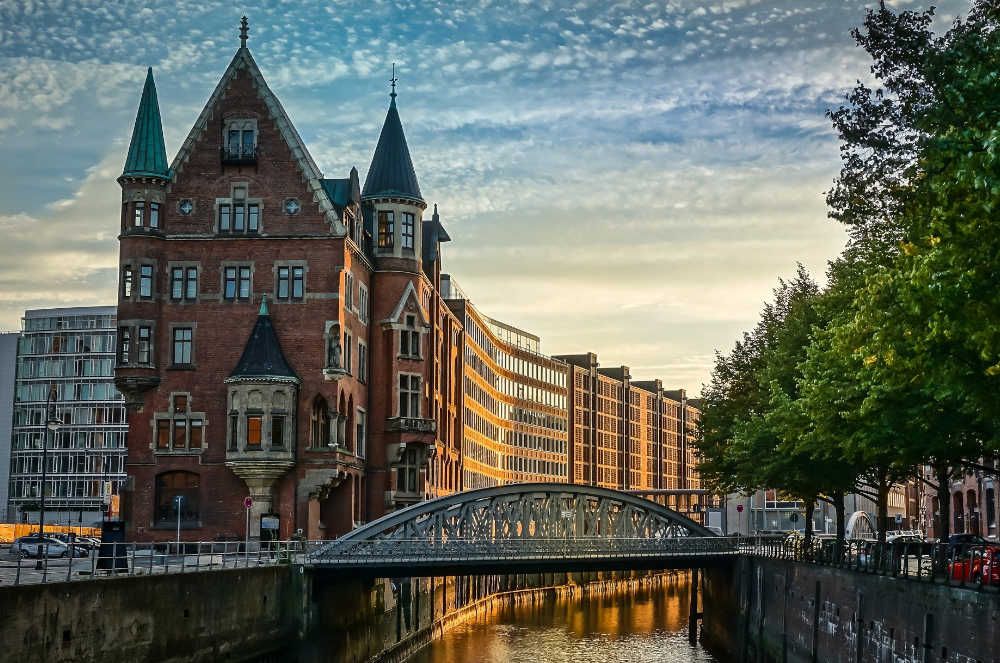Moving to Hamburg

Moving usually means excitement and curiosity about the new place, especially when it comes to changing the country of residence. The Hanseatic city of Hamburg is certainly one of the most interesting and recommended cities in Germany.
About Hamburg
The Free and Hanseatic City of Hamburg is the second-largest city in Germany and the 7th largest city in the European Union, with a population of over 1.8 million. It’s located on the Elbe River, which flows into the North Sea and is, therefore, Europe’s third-largest port.
Hamburg was an independent state until the Unification of Germany in 1871. It’s an economically powerful city with a lively and international space for citizens and tourists. Not many people know about this, but Hamburg has more canals and bridges than Venice and Amsterdam together. Moreover, there are many parks and gardens in the city, thereby it is a perfect place to settle down (ranked in 2012 the 17th best city worldwide to live in).
Moving to Hamburg from the UK
There is a large English-speaking population in Hamburg, consisting mostly of British and American citizens. Those who will move from the UK to Hamburg will notice a great number of British clubs and communities set up mainly for Brits living in the city. Also, the British consulate can assist you with settling in, registering residency and with any other formal business.
German is the official language in Hamburg, but the state offers free integration courses to migrants, which cover the basics of the German language. You can also choose a private course, for example in the Goethe Institute, which offers intensive 2-week courses for about €600.
Property prices are unfortunately increasing fast in Hamburg in recent years. Due to the average price of €3,100 (£2,635) per square metre is Hamburg the second most expensive city in Germany, just after Munich. If you want to rent a one-bedroom apartment near a U-Bahn station, you have to pay ca. €850 (£723) per month.
Moving from UK to Hamburg
You can compare Hamburg’s oceanic climate to that of London, with warm but wet summers, cold winters and just a few snowy days per year. The cost of living is much lower in Hamburg than in the UK capital. You’ll find cheaper apartments and pay less for supermarkets, restaurants, transport and entertainment. Residents of Hamburg report higher feeling of safety, less pollution, better health care and much lower commute times. Hamburg is a great town for theatre fans, the English Theatre of Hamburg is the oldest English language theatre in Germany, producing classics and also new plays.
Work Permits in Hamburg
The process for obtaining papers to work legally in Germany depends on your nationality. For EU citizens, (and those from Iceland, Liechtenstein, Norway and Switzerland), the process is relatively easy. You need just a valid passport to register at the local authority – Bürgeramt or Einwohnermeldeamt.
For people outside the EU, it’s a bit more complicated to obtain a residence and work permit. The best way is to apply for an EU Blue Card, which gives you the right to work and live in Europe. The general requirements are a university degree and a current contract of employment.
Transport in Hamburg
The Hamburg Public Transport Network (HVV) runs a large network of regional and commuter services on rail and bus around the city and its surrounding areas, as well as harbour ferries. The city has four underground lines (U-Bahn) and six above-ground lines (S-Bahn). Many residents living in Hamburg choose often bike to ride around the city. This is also a great way to explore the city because Hamburg is very bike-friendly. There are various bike lanes, roads, parks and car-free areas.
Working in Hamburg
Hamburg is an important place for the German and European economy. It is Germany’s richest city with a high employment rate at 92.1%. The Port of Hamburg processes over 134 million tons of goods a year, so there are lots of opportunities for people considering working there.
